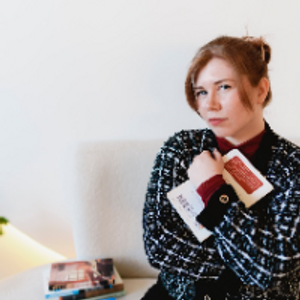
The beginning was...
The first thing I remember is darkness, glowing faintly red. Back then, I was an amphibian, a human being who could breathe in my mother’s amniotic waters. I remember the light, the fear—and then a slap.
Yesterday, outside my five-story apartment building—a typical one for the country now “unspeakable,” the supposed threat to all humanity—I overheard a conversation between some local guys. One of them said,
“Where everyone sees a problem, I see opportunities.”
A perfect motto for the years when I lived my early life. The 1990s in Russia, a country that had just shed its red uniform. A ruined, violated land where gangsters and oligarchs tore apart the remnants of the motherland.
From a young age, I knew three rules for survival. My grandmother, who had been a radio operator during the Great Patriotic War, taught me these:
Never get into a car with strangers.
Be home by four.
Never open the door to anyone.
And I also remember my mother’s breath.
The rest of my memories are scattered. Here I am, pushing a stranger’s stroller with a little boy through my small ghetto. Mothers stroll with their children, the streets are still green, untouched by the ever-present dust from the steppes. It’s different now.
Then, it’s like a void: nothing until my grandfather picks me up in his arms. That memory is vivid. He had grown up in a village and drank heavily. My father said my grandmother died from the stress he caused when my dad was 16. But I only learned this when I turned 20.
At that moment, I was just a baby. My grandfather held me, smiling. In his kitchen, there was an aluminum basin where he soaked apples for winter. My mother told me he passed away two days later.
It’s strange that I remember this—I was only one year old. I think my childhood ended when I first learned about death.
I remember that moment. I was three, and my mom was putting me down for a nap. She lay beside me, wrapping her arms around me. Her voice was soft and soothing, almost like silk. She was half-asleep, and I stared at the golden curtains swaying gently in the breeze. That glow—it still comes back to me when I need to feel happy.
Because happiness is a choice. Even then, I understood that.
I heard our neighbor—a hunched old woman named Zhenya—open her door. Suddenly, I asked my mom,
“Why does Grandma Zhenya look so different from you or me?”
Half-asleep, she murmured,
“She’s old. She’ll pass away soon.”
“What does ‘pass away’ mean?” I asked.
Mom opened her eyes and answered gently,
“Sweetheart, we all leave one day and never come back.”
I lay there with my eyes wide open while Mom drifted off to sleep. And then I burst into tears, sobbing loudly:
“Mom, I don’t want to die! I don’t want you to die!”
Mom hugged me tightly and said it wouldn’t happen for a very long time, and that she’d always be there for me.
Now I’m 34, and my mom is 68, but I still hope that what she said is true.
My childhood was a good one—good enough, considering how bad things were outside, on the streets. My parents worked in the theater, and I would climb around the stage, hide among the props, and watch adult performances.
But that’s another story, and I wouldn’t want to bore you.
What surprises me most is that this is the first time I’ve written about myself.